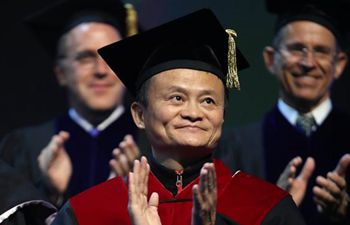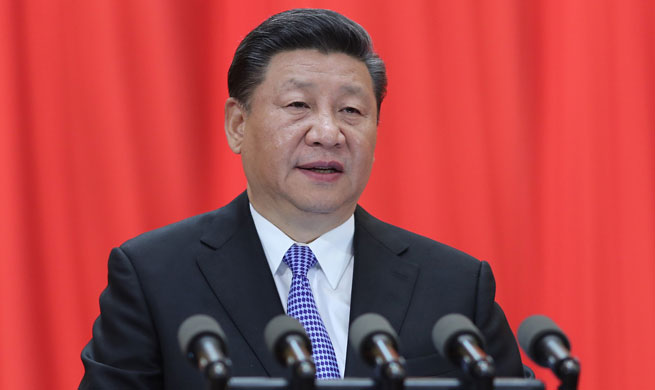by Luis Rojas
MEXICO CITY, May 4 (Xinhua) -- Latin America's two largest economies Mexico and Brazil face the risk of polarization in their upcoming elections, says one expert.
Mexicans will vote on July 1. The country has seen the rise of Andres Manuel Lopez Obrador, known as AMLO, a left-wing candidate and former mayor of Mexico City.
Brazil's elections are scheduled for October, and among the candidates with increasing popularity is Jair Bolsonaro, a right-wing populist who has spoken fondly of the country's former military dictatorship.
"There is a a very strong degree of polarization in them and that is a great risk," said Marcos Casarin, an expert on Latin America for Oxford Economics. "The major point in Latin America is to understand...if either of the two economies, or both, will go to the extremes and how shaken the region will be."
The economist said Brazil might face a situation similar to 2014 when Dilma Rousseff, the candidate for the Workers' Party, won in the second round.
According to Casarin, polarization pushed Rousseff to make ever more extreme campaign policies.
"The economy was not being represented. To maintain the growth of the time, they had to double public spending and protect employment, measures that were not sustainable in the long term," he said. "The result: Brazil sank into the worst recession of its history."
Rousseff was impeached in 2016 for violating Brazil's federal budget laws.
In Mexico, polls show Lopez Obrador is a clear favorite. However, Casarin warned that the third-time candidate could make unattainable pledges.
"While he seems more moderate, he is of a party that historically has been on the extreme left," he added.
Lopez Obrador has worried some in the Mexican business community by saying that should he win he might undo some of the structural reforms passed by the current administration of President Enrique Pena Nieto.
Meanwhile, Casarin said Lopez Obrador would have to deal with not having a majority in Congress, which will prevent him from raising public spending too suddenly and maintain the autonomy of the central bank.
Regarding the election, "Mexico will live through another moment, but it will not necessarily be any better or worse," Casarin said.

















